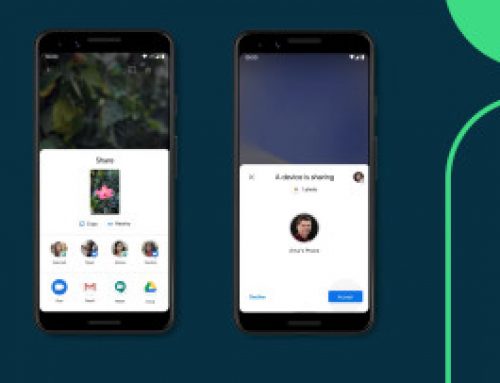
We use our Android devices for everything nowadays. Calling, texting, checking email, scrolling through social media – you name it. Among those who take their mobile web browsing seriously, the choice of browser app is very crucial.
What makes users prefer one browser over another? Several considerations include feature sets, aesthetics, and of course speed and performance. To help you find the right one to suit your needs, we subjected 10 of the best Android browsers to a series of tests and benchmarks to find out which one is the top performer. Which is the fastest Android browser? Continue reading to find out.

 See also: 10 best Android browsers of 201681
See also: 10 best Android browsers of 201681
Aims, method, and limitations
Our aim for conducting these tests is to provide extensive (but not necessarily exhaustive), objective and measurable data, helpful in deciding which Android browser to favor for daily use.
We tested the following specific browser versions:
- Google Chrome 49.0.2623.105
- Dolphin Browser 11.5.5
- Mozilla Firefox 45.0.2
- Naked Browser version 1.0 build 112
- Opera Browser 36.1.2126.102083
- Puffin Browser 4.7.4.2567
- UC Browser 10.9.0
- InfiKen Labs Flynx Browser 2.0.1
- Ghostery Browser 1.3.2
- Mercury Browser 3.2.3
As of this writing, the browser versions listed above are the most current.
Test device used
The browsers were tested using a Nexus 6P running stock Android 6.0.1 Marshmallow.

The Nexus 6P was factory reset before these tests took place. We didn’t install any other apps on the phone aside from the browsers and a system monitor app for determining memory use.
Reboots
Before each test, the Nexus 6P was rebooted to ensure that the tests ran on a clean slate. Browsing data, history, cookies, and other browser app data were also cleared before each test was run, except in the cached page loading test. We wanted to minimize the possible influence of other apps or data upon the test results.
Also, to improve data accuracy, we ran each test or benchmark three times and computed the arithmetic mean or simple average of the three recorded results.
Areas tested
Our series of tests covered these general areas:
- JavaScript and overall browser performance
- Page loading speed
- Memory consumption
Browser performance
To test JavaScript and overall browser performance, we used the following popular and well-known benchmark suites:
- Sunspider
- Mozilla Kraken
- Browsermark
- Peacekeeper
These tools measure browser processes, such as page loading, JavaScript performance, HTML capabilities, etc., and represent the browser’s “performance” with a numeric score. Scores will vary from time to time, even when the same benchmark is run on the same device.
SunSpider 1.0.2

We first conducted the SunSpider 1.0.2 JavaScript Benchmark, designed to test the core JavaScript abilities of the browser. Measured in milliseconds, a low score means faster/better performance.

Puffin Web Browser aced the SunSpider test, while the next fastest contestant was UC Browser. That’s an amazing lead time, though. The fastest browser beat the second fastest by 577.3 milliseconds.
Sadly, it seems the slowest browser here is Chrome. I know… I couldn’t believe it either.
Mozilla Kraken 1.1

After SunSpider, we ran Mozilla Kraken JavaScript Benchmark 1.1. Like SunSpider, it measures the browser’s JavaScript performance through the use of “different test cases extracted from real-world applications and libraries.” The benchmark is developed by the Mozilla Foundation.
As with SunSpider, the score is in milliseconds; smaller score means better performance.

Registering the shortest time in this test, Puffin continued to stay on top, while Dolphin managed to stay lowest in rank. Firefox got second place, with Chrome now taking the 6th spot.
Browsermark 2.1.3
The third benchmark, Browsermark, measures overall browser performance. Browsermark checks performance in these areas: general (e.g., page load time, screen resizing, etc.), JavaScript, CSS, DOM, and graphics (particularly WebGL and Canvas performance).

The race this time is not about who gets the lowest score but about who gets the higher score.

This time Opera was top performer with a score of 2431. Chrome came in second. Meanwhile, Dolphin really fell behind in this more thorough benchmark.
Peacekeeper
Next, we ran the Peacekeeper benchmark suite. This well-known and frequently used browser benchmark measures “overall performance” by testing the browser’s ability to handle commonly used JavaScript functions. Its individual tests include those for rendering, HTML5 (WebGL, video, web worker, game, Canvas), data arrays, DOM operations, and text parsing.

The averaged scores are shown below. Higher score means better performance.

Once again, Puffin is smoking the competition… by far. It’s 5349 is far above even the second best contender, which is UC at 1497. Meanwhile, Dolphin is falling behind with a measly 938 score.
As we can see, though, most browser stick between 1300 and 1500. Curiously, Chrome falls behind with a 1256 score. I guess our favorite browser is not the best performer, after all.
Memory consumption
Memory consumption is another crucial factor in browser selection, especially among users of low-range and mid-range Android devices having limited memory. Our last set of tests measured how much memory was used by each browser.
No open page
We first measured how much memory was consumed by each browser running without any open tab or page.
To ensure result accuracy, we cleared the browser cache first, then rebooted the Nexus 6P before launching the browser. If the browser had popup dialogs, “tours”, or “getting started” prompts, we first dismissed those. Then, we terminated the browser and relaunched it. Only then did we take a reading of the browser’s memory use. Three readings were taken for each browser, the averages of which are shown in the graph below.

Dolphin Browser used the least memory (45 MB). The second best was Naked Browser, with Chrome and Ghostery tied for third place. And Chrome is known for being a RAM waster. Let’s see how it performs once tabs start opening up, though. Also – wow, Opera! No page loaded and already using up 99 MB.
5 open tabs
Which of our 10 browsers uses the least memory even when multiple pages/tabs are open? This was what we wanted to find out in the next set of tests.
The procedure for this set is similar to that for the zero-tab test earlier. First, browser app data were cleared, the device was rebooted, browser startup dialogs were dismissed, and the browser was terminated and relaunched. Then, 5 real web pages were opened one by one in the browser while observing a 7-second delay between tab openings. After the last page has loaded, the memory use of the app at that point was recorded. Three readings were taken for each app and then averaged.

From top position in the previous test, Dolphin Browser slid down to fifth place in this test. Taking its place was Chrome. Crazy, right? We all thought Chrome was the worst with RAM. I suppose that is only the case with the desktop version!
Meanwhile, we seem to be finding out that all that Puffin speed doesn’t come without its sacrifices. It came in second to last. And Flynx is using up 658 MB of RAM!
Conclusion
After conducting all the tests for this post, we affirmed a notion that we’ve always held to be true: “the fastest Android browser” doesn’t exist in an absolute or universal sense. But it seems Puffin is kinda getting there. That is, if you have the RAM to spare. I was definitely impressed, and am going to start using it from now on.

Other popular, solid and stable browsers such as Firefox, Chrome, Dolphin, Opera, and UC registered variable performance scores in the different tests. They weren’t the fastest performers in our tests. They weren’t even the most lightweight in the bunch, although Chrome did show memory usage that stayed within the lightweight half of the list.
Hit the comments and let us know which browsers you like! Do you have any browser you think is the fastest? If it’s not on this list, please go ahead and share it with us!






Leave A Comment